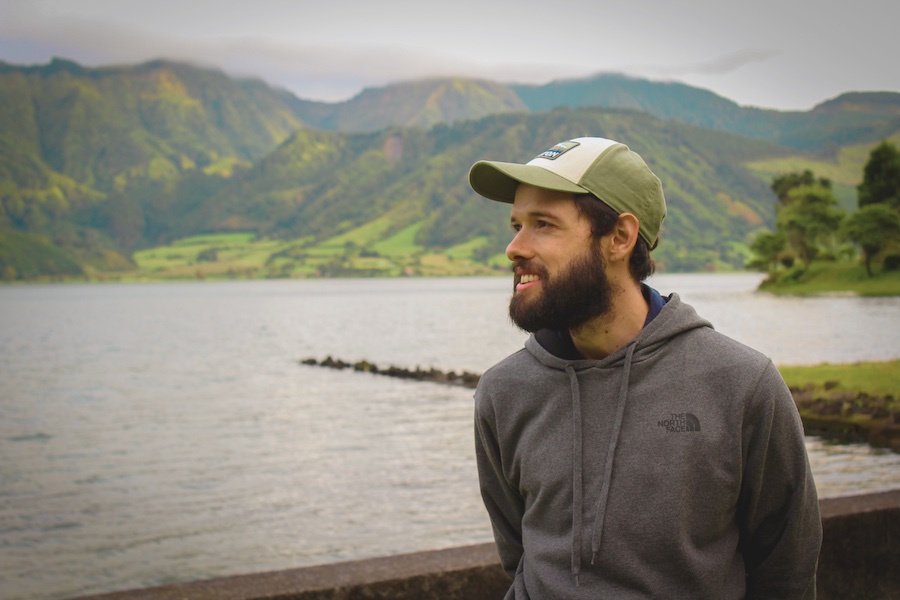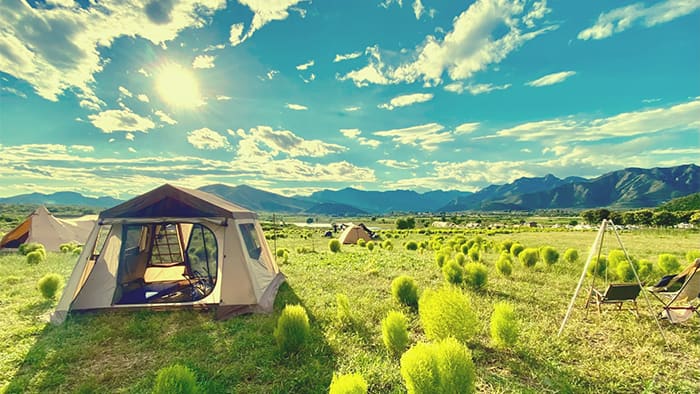Camping is addictive. While some people are slow to warm up to the idea of camping, the truth is that getting a taste for camping in your blood happens pretty easily after just one night of cricket serenades under a milky, star-studded sky.
Most people who love camping are chomping at the bit to get back in the woods as often as possible. Of course, things like work, school, family and the effort required to plan a trip can all make it hard to camp as often as you wish you could. The fact of the matter is that camping isn’t just something that’s fun to do.
Camping is actually great for you! Yes, camping regularly can improve physical and mental health. That might leave you wondering just how often you should be camping. Take a look at how to decide how often you should be fitting camping trips into your schedule.
What Are the Benefits of Camping?
It can be helpful to dive into the why of camping before pinning down a number for how many times a year to book camping trips. Just how good is camping for your health? Here’s a look at the benefits of camping.
Mental Health: “Researchers linked outdoor activity to a decrease in depressive thoughts,” according to the National Park Service.
Sleep: Has your sleep life been suffering lately due to stress, busyness or too much late-night screen time? Sleeping under the stars for a few nights can actually help you to reconnect with your natural circadian rhythms to improve your physical health and mental performance.
Fresh Air: If you live in a busy city, poor air quality may be getting to you. Camping places you in an area where fresh air is abundant. Your lungs will love you after a camping trip!
Digital Detox: While you might try to lock your phone in a drawer to get away from the digital chaos, this is a poor way to unplug. Camping forces you into a digital detox because there is so much beauty to take in all around you. What’s more, you may have no choice other than to be present at certain points during your trip when reception is unavailable.
Exercise: Hiking in nature can burn between 292 calories and 984 calories per hour depending on factors like body weight, speed and terrain incline.
Confidence: Developing life skills that allow you to thrive out in nature creates a sense of confidence that carries into everything you do.
Connecting With Nature: Exposure to nature supports physical well-being by reducing blood pressure, heart rate, muscle tension and the production of stress hormones,” according to researchers at the University of Minnesota’s Earl E. Bakken Center for Spirituality & Healing. Nature time is even associated with reduced mortality rates. A study from 2019 reveals that spending at least 120 minutes a week in nature is associated with good health and well-being.
The fact that spending just 120 minutes a week in nature is enough for better health might inspire you to book a camping trip every weekend to get a lump dosage of wellness after a busy week. Is this the best option? Next, take a look at some tips for deciding how often to go camping.
How Often Should You Go Camping?
Your proximity to good camping sites is one of the biggest factors in determining how often to go camping. The key is to maintain all of the positive benefits of camping without undoing any of the good by getting stressed out over planning your trip.
There’s really no such thing as camping too frequently if you live a short drive away from great camping spots. However, these are the big questions to ask before you decide that you want to be an all-year camper:
1. Do I feel adequately prepared to handle extreme weather conditions at various times of the year?
2. Do I have a system for staying on top of weather alerts or park bulletins altering me to the fact that it’s not safe to camp on any given weekend?
3. Do I have the appropriate temperature-rated camping gear?
4. Do I have a tent that’s easy for one person to set up if I’ll be taking camping trips alone?
My personal recommendation is to try to take at least one big camping trip per year. That usually means camping in one of the national parks.
In addition, planning one camping trip per month if you’re in an area where the weather conditions allow for safe camping within one to three hours of your home is also a great strategy for making that nature connection regularly.
Those monthly trips are really great for giving you something big to look forward to every few weeks without big commitments in terms of time, travel or money.

Fueled by his own lifelong passion for the outdoors, Ryan is dedicated to sharing his knowledge to help others experience the life-changing beauty and majesty of nature. He enjoys planning expeditions throughout the United States. He also has a passion for finding gear and methods that enhance the experience of enjoying nature.
